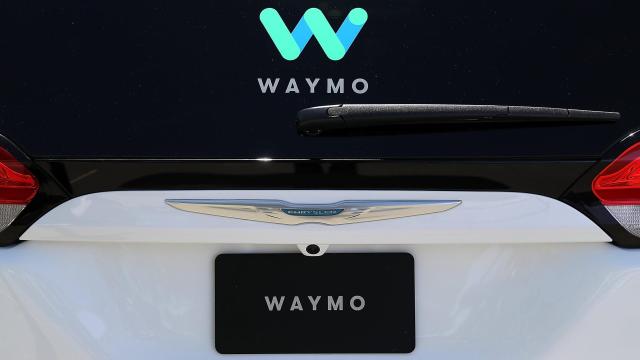Waymo, the burgeoning autonomous vehicle company living under the Alphabet umbrella, is suing the California DMV to keep certain records of its test car crashes private. Though that type of data might seem like just the sort of thing public safety agencies like the DMV should be sharing with the public, Waymo reportedly disagrees and argues those crashes and collisions actually include trade secrets.
Those claims are part of a lawsuit filed by Waymo against the DMV to keep private the finding, which is necessary to issue permits for autonomous vehicles to legally operate on California public roads, according to a Los Angeles Times report. In addition to the crash results, the DMV also requires information on how autonomous Waymo vehicles would operate in an emergency, and what the company would do if the vehicles unexpectedly began driving in prohibited areas. All of those findings amount to trade secrets, Waymo maintains.
“Every autonomous vehicle company has an obligation to demonstrate the safety of its technology, which is why we’ve transparently and consistently shared data on our safety readiness with the public,” a Waymo spokesperson told Gizmodo in an email. “We will continue to work with the DMV to determine what is appropriate for us to share publicly and hope to find a resolution soon.”
The LA Times article highlights one document requested by an unnamed entity that asked for data and documentation around driverless deployment applications. The DMV reportedly allowed Waymo to mark that document and issue redactions prior to its release. The end result is mostly blacked-out pages with the occasional smattering of readable words here and there. In some cases, even the DMV’s own questions were redacted. The original requester of the documents challenged Waymo’s redaction, which in turn eventually led the company to sue the DMV, the LA Times notes.
In its suit, which was filed on Jan. 21 in California Superior Court in Sacramento County, Waymo argued such disclosure requirements would stifle the autonomous vehicle industry. “Potential market participants interested in deploying autonomous vehicles in California will be dissuaded from investing valuable time and resources developing this technology if there is a demonstrated track record of their trade secrets being released,” the lawsuit reads.
And yet, lingering safety concerns around autonomous vehicles will likely also limit adoption and investment as well. Even as advanced driver assistance technologies become more prevalent and more actual autonomous test cars start lining city streets, most people still aren’t bought in. Just 37% of U.S. adults polled by Morning Consult last August said they may ride in an autonomous vehicle in the future. Forty-seven per cent of respondents said they believed autonomous vehicles were less safe than regular cars, with just 22% saying the AVs were safer. That 22% is actually down from 27% of respondents who thought AVs were safer in the same poll conducted in 2018.
Meanwhile, confusing mislabeling of certain driver-assist technologies by companies like Tesla certainly are helping things either. Facing mounting scrutiny from public safety groups and lawmakers, Tesla finally admitted that its Full Self Driving feature only actually achieves Level 2 autonomy on a six-point scale.
Read the full Waymo lawsuit against the California DMV below.
